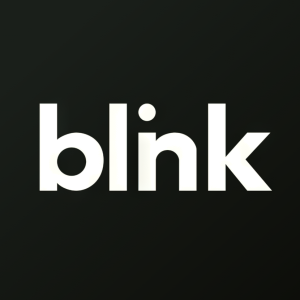Blink Charging IQ 200 Receives CTEP Certification Allowing the 80 Amp Commercial Chargers to be Widely Deployed in Leading EV Market
Blink Charging, a leader in EV infrastructure, has received California Type Evaluation Program certification for its IQ 200 chargers, ensuring accurate billing for EV users. These chargers can deliver up to 80 amps, positioning Blink to meet California’s projected need for 1.2 million chargers by 2030 as electric vehicle adoption soars. CEO Brendan Jones highlighted California's growth potential in EV infrastructure, with Blink's robust network already expanding across various sectors to support increasing demand.
- Received CTEP certification for IQ 200 chargers, confirming accuracy in billing.
- Positioned to capitalize on California's projected need for 1.2 million chargers by 2030.
- None.
Insights
Analyzing...
- Certification Further’s Blink’s Ability to Help Fulfill California’s Estimated 1.2 Million Charger Need by 2030
Miami Beach, FL, Dec. 14, 2021 (GLOBE NEWSWIRE) -- Blink Charging Co. (Nasdaq: BLNK, BLNKW) (“Blink” or the “Company”), a leading owner, operator, and provider of electric vehicle (EV) charging equipment and services, today announced it has received a certificate of approval for its IQ 200 chargers under the Division of Measurement Standards: California Type Evaluation Program (CTEP). Blink’s IQ 200 units are one of the fastest level 2 AC charging stations available on the market, with a maximum output of 80 amps.
The standards for certification mirror those on gas pumps, to ensure every kilowatt-hour is accurately displayed on the station, accounted for in the billing process, and accurately represented in the cost to the consumer.
“The CTEP certification is designed to ensure accuracy and transparency and Blink is pleased that our IQ 200 line of chargers has met the stringent standards of CTEP and been approved for certification,” commented Brendan S. Jones, President of Blink Charging. California leads the nation in the early adoption of EVs and in the establishment of initiatives and legislation to promote the development of far-reaching, reliable, and accessible electric car charging infrastructure. Mr. Jones emphasized that “as a leading owner and operator of EV charging infrastructure, Blink recognized that California represents a tremendous growth opportunity and that Blink is well positioned to deploy our chargers throughout the state to support rising demand as more drivers transition to EVs.”
Analysis conducted earlier this year by the California Energy Commission (CEC) shows the state will need nearly 1.2 million public and shared chargers by 2030 to meet the fueling demands of the 7.5 million passenger plug-in electric vehicles (EVs) anticipated to be on California roads and an additional 157,000 chargers to support medium- and heavy-duty electric trucks and buses.
Before any new type of weighing or measuring device can be sold or used for commercial purposes in California, it must be evaluated and approved by the Department of Food and Agriculture, Division of Measurement Standards (DMS). DMS' California Type Evaluation Program (CTEP) evaluates a device, and the purpose of type evaluation is to certify that the design and performance of a new commercial weighing or measuring device model is suitable for its intended use, is accurate, operates correctly, has all required markings, and prevents the facilitation of fraud. Upon successful CTEP evaluation, DMS issues a Certificate of Approval (COA) that allows the device to be used for commercial purposes. Blink’s IQ 200 charger successfully passed all such CTEP evaluations and proudly carries the Certificate of Approval.
###
About Blink Charging
Blink Charging Co. (Nasdaq: BLNK, BLNKW) is a leader in electric vehicle (EV) charging equipment and has deployed over 30,000 charging ports across 13 countries, many of which are networked EV charging stations, enabling EV drivers to easily charge at any of the Company’s charging locations worldwide. Blink’s principal line of products and services include its Blink EV charging network (“Blink Network”), EV charging equipment, and EV charging services. The Blink Network uses proprietary, cloud-based software that operates, maintains, and tracks the EV charging stations connected to the network and the associated charging data. With global EV purchases forecasted to rise to 10 million vehicles by 2025 from approximately 2 million in 2019, the Company has established key strategic partnerships for rolling out adoption across numerous location types, including parking facilities, multifamily residences and condos, workplace locations, health care/medical facilities, schools and universities, airports, auto dealers, hotels, mixed-use municipal locations, parks and recreation areas, religious institutions, restaurants, retailers, stadiums, supermarkets and transportation hubs. For more information, please visit https://www.blinkcharging.com/.
Forward-Looking Statements
This press release contains forward-looking statements as defined within Section 27A of the Securities Act of 1933, as amended, and Section 21E of the Securities Exchange Act of 1934, as amended. These forward-looking statements, and terms such as “anticipate,” “expect,” “intend,” “may,” “will,” “should” or other comparable terms, involve risks and uncertainties because they relate to events and depend on circumstances that will occur in the future. Those statements include statements regarding the intent, belief or current expectations of Blink Charging and members of its management, as well as the assumptions on which such statements are based. Prospective investors are cautioned that any such forward-looking statements are not guarantees of future performance and involve risks and uncertainties, including those described in Blink Charging’s periodic reports filed with the SEC, and that actual results may differ materially from those contemplated by such forward- looking statements. Except as required by federal securities law, Blink Charging undertakes no obligation to update or revise forward-looking statements to reflect changed conditions.
Blink Media Contact
PR@BlinkCharging.com








